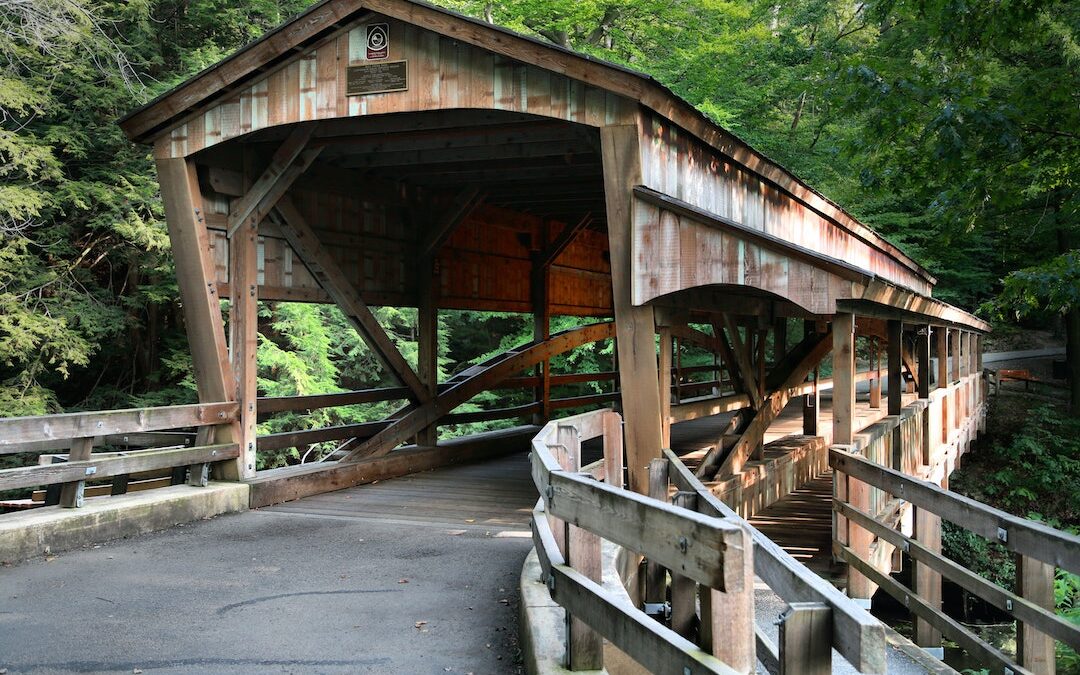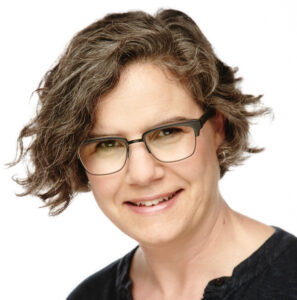“So what’s for dinner?” I was foraging through Mom’s fridge, taking advantage of the quickly dissipating cold blast of air in my face, trying to come up with a plan. “Is there any fish or chicken in there? We could use the fire pit.” I started to pull ingredients.
Mom poked her head out the kitchen window.
“Where are the kids?” She said it nonchalantly, knowing they would be somewhere nearby. Ernie and Georgia were both six at the time.
I’d been debating whether to light the outdoor pit or roast ourselves cooking inside in Mom’s tiny little kitchen, at the hottest part of the year. I remember the daylight fading; I remember being engrossed in some sort of adult conversation though I don’t recall what the topic was; I remember following my mom’s eyes to the window; I remember a loaded pause; and it occurring to both of us: The kids weren’t there.
***
That Fourth of July weekend, my son Ernie and I had flown to the east coast to visit my mom, Cricket. Mom was living in a tiny little 19th-century schoolhouse on a rural dirt road in Cornish, New Hampshire. Cornish is a town where you leave the door unlocked and leave your car keys on the dash or on your seat.
My niece Georgia spent a lot of time at Mom’s when my brother Nathan was busy living and working in New York City. Georgia’s dimpled cheeks grace a face oddly wise, her eyes dark brown, her long hair almost black. Ernie’s eyes are hazel with a tiny irregular spot of brown in one eye; hair almost impossible to describe, a blend of strawberry-blonde-dirty-brown-chestnut, now down to his shoulders. Ernie and Georgia are seven weeks apart in age. While the kids were definitely connected, each of them was very different. Ernie was busy in his mind; he is “twice exceptional,” meaning absolutely brilliant at one end of the spectrum, and on the other end, a learning disability in the form of executive functioning: maintaining focus, not being able to keep track of things, not finishing projects, and so on. Georgia made her presence known. Their absence, however, at this moment, was troubling. Fear started to creep in slowly, starting in my stomach.
“I thought they went to Ann’s,” Mom said.
“No, I already checked. The donkeys were in the barn.” We looked at each other, both of us starting to worry for real.
“Maybe they’re hiding in the basement – they’re really good at that.” Mom headed for the stairs.
“Or maybe in the field?” The Burling’s Farm was right across the road. “Oh, wait – I think the hay has already been cut…”
And then I remembered:
The Burling’s have a pond. Holy fucking shit.
This might have been a moment to pray, but I don’t believe in god. I don’t believe in organized religion. I understand the premise of Buddhism, but I learned quickly it is not for me. Meditation is for those who can conquer monkey brain. I cannot. I tried it. Many times. If I were to believe in anything, it would be The Universe, the thing existing everywhere and nowhere and ever-present, claiming its space, past the edge of the never-ending sky and the galaxies beyond. The rest is our collective existence, standing on earth, on every plane, inhabiting nothing more than simply being alive.
The Universe, however, had been so unkind to me I lived in a state of perpetual begrudging drudgery. I’d endured so much chronic pain for two decades: my spine slowly disintegrating; four spinal surgeries, then four more orthopedic ones after that; chronic migraine; a massive pulmonary embolism that could have killed me on the spot, and another one about a year later. So many surgeries I’ve lost count.
And then I had a stroke during surgery in Vienna.
All of this seemed never-ending.
My version of The Universe is comprised of a frighteningly, highly-educated population of Ethereal Nothings who come up with provocative lessons and deliver them to humans. The Universe has hand-selected for you, a message, wrapped in a lesson, and the lesson will not be revealed until you’ve decrypted the contents of the message. When you’ve figured out what your job should be, you’ll find a gift waiting for you at the end of the rainbow.
But where was my lesson? Where was my gift?
Where were the kids?
I didn’t pause to make a plan or say anything to Mom, once I remembered the pond. I was on auto-pilot, jetting out of the house and across the road to the Burling’s horse farm, making no notice of anything else around me, navigating bumpy terrain through the recently cut hay field, running as fast as I could on my terribly painful, just operated-on right foot. I was in agony as I made a beeline for the horizon where the field sloped down toward the pond. If the kids weren’t on the swing set or at Ann’s or in the basement, where else could they have gone?
I started yelling, “Ernie! Georgia! Where are you?!?!”
I got to the pond’s edge, completely out of breath and the water was still… Eerily still.
There were no tracks on the Burling’s dock, no wet spot on the lawn chairs, nothing. My heart lodged in my throat. I reached for my phone from my back pocket to call Mom, but I hadn’t thought to grab it.
I ran back down the dock and skirted the perimeter of the entire pond. I didn’t see anything. Using every ounce of volume I could muster, I yelled, “ERNIE!!! GEORGIA!!! WHERE ARE YOU? COME BACK!!!” My voice was hoarse, my diaphragm stretched to its limit. My gut hurt from the intensity of my yelling, yelling into gulps, gulps into sobs, sobs into tears, and snot plastered to my face as I turned back from the pond, and started running back across the hayfield on my injured foot, red hot pain shooting up through my right limb, all the way up to my hip.
I thought about Mom, probably going back to Ann’s, re-checking the basement, and heading to a little path beyond the side yard, where the kids would find good sticks and twigs and moss to play with. I was in the middle of the field still running as hard as I could, my right foot on fire, when Mom appeared in the front yard, waved her phone in her hand and yelled, “I’m taking the car!” Her guess was that they went to the covered bridge, the thing the kids had asked for when they visited, time and time again.
I saw Mom’s car disappear over the little dip in the road. There was water under the bridge.
Terror took over.
I was alone.
I didn’t have my phone.
There was nobody nearby.
There was no one to call.
Where were the kids?!
I stopped running when I got to the edge of the road, pain shooting daggers throughout the right side of my body. My heart wanted to burst. I fell to my hands and knees on the dry gravelly ground. The only sounds were my heaving, gulping for air; otherwise, there was silence. Once Mom was gone, I realized they were gone, and there was nothing I could do.
I filled my lungs without thinking, and something came out of my mouth; a siren call of fear and agony, like a trapped tiger or the sound of a giant tree falling in the forest. I didn’t recognize my own voice. Ernie… Georgia… Where are you? Please come back please please please… I couldn’t move. I couldn’t stop the sound that came out of me – fear and desperation, mixed emotions bellowing out of me like a cow searching for a lost calf. What if they did go to the covered bridge? What if they ended up in the water? Alone? Is now the time to call upon a god I don’t believe in? Or has The Universe given up on me?
I don’t know how long I sat at the edge of the road, on my hands and knees, while the sounds ripped out of me – wailing, all emotions mixed together, at the highest volume – almost a foreign language. It felt like time was on hold.
I was still sobbing, grasping for air when I heard the sound of Mom’s car blowing the horn and multiple thoughts ran through my head: They’re in the water, they’re totally lost, or they’ve been found. I pushed myself up to stand and I saw Mom in the driver’s seat, motioning out the window to say they were okay. Once the car came to a stop, I ran to the back and opened the passenger car door. Looking into the back seat, Ernie’s face was frozen, ashen. Georgia had been quietly crying.
I reached for Ernie and grabbed him out of the car. He didn’t move toward me. I had to pull him up from the seat and pull him into my arms. He didn’t put his arms around me and didn’t say anything; he laid on me like deadweight, didn’t move at all. I closed the car door and I held him and eventually, I pulled away, still crying, and looked him in the eyes and said, “That can never happen again. Okay?” I moved away from the car. Mom was ahead of me, going into the house with Georgia. She held the front door open, and we walked into the house, Ernie still strapped to me. I sat down on the couch and settled him on my lap.
“Okay, Ernie?”
He didn’t respond.
“Ernie?” I said.
He wouldn’t answer. He pushed himself off my lap and lay face down on the rug in front of the dormant woodstove and stayed there. After a brief pause, I got up from the couch and kneeled next to him. I put my head level to his. I looked him in the eyes and said, “Okay, Ernie?”
He wouldn’t answer. “All I’m asking for is an ‘okay.’”
He looked at me. “Ernie. Why can’t I get an okay from you?” I went back to kneeling.
Quietly, he said, “I don’t want to say it out loud.” I looked at him. A moment passed. I bent down next to his face again, to give him my ear. And then he whispered, “Okay.”
***
That night, everyone exhausted and emotionally drained, I had to drag myself back into the kitchen and try to salvage what was left of our original dinner plan.
The kids did visit the covered bridge. Kyle, the neighbor, lived in plain sight of the bridge and he heard children’s voices, met them outside, and called my mom to let her know the kids were okay. We let things sit for a few days. Ernie knew how upset I was; he could feel my heartbeat when I held him so tightly to my chest. We gave the kids boundaries and made plans for meeting points if/or when anyone got lost.
It took six years for me to understand the reason: that message, wrapped up in a lesson, delivered from The Universe directly to my heart, is to care for Ernie, my twice-exceptional little boy. Never mind the pain I’ve gone through, Ernie is here. I want to protect him from the uninvited ugliness seeping in all around us every day, nurture him, support him, and let his imagination go wild. Now this is my job, and I treasure it.
If I pray now, it’s to The Universe.
A fourth-generation Vermonter, Eliza Laffin is now living a queer life in San Francisco as a writer, teacher, and professional chef who left the food world after an accident landed her in tech. It was a s


